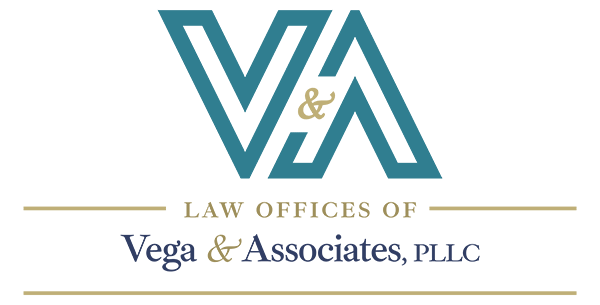
Introduction
Green Card eligibility confuses many people. But getting your Green Card is not as hard as you think. A Green Card gives you the right to live and work in the United States. Also, it puts you on the path to become a U.S. citizen. So who qualifies for a Green Card? The answer depends on your situation.
The USCIS Green Card eligibility categories include family ties, job offers, refugee status, and more. Plus, each Green Card category has its own rules. Understanding these eligibility requirements helps you plan your next steps. Then you can start your Green Card application with confidence.
At Vega & Associates, we help people in Houston understand Green Card eligibility every day. Our team of Houston green card attorneys has over 45 years of experience with immigration law. Now, let me explain who can apply for a Green Card in clear terms.
Table of Contents:
- Green Card Eligibility Through Family Ties
- Who Qualifies for a Green Card Through Work
- Green Card Requirements for Special Cases
- How to Check Your Green Card Eligibility
- Next Steps for Your Green Card Application
Green Card Eligibility Through Family Ties
Family ties create the most common path to Green Card eligibility. In fact, over 40% of Green Cards go to family members. So who can apply for a Green Card through family? You need a U.S. citizen or Green Card holder to sponsor you.
Immediate relatives of U.S. citizens qualify first. This includes spouses, parents, and unmarried children under 21. These family members face no wait times. Plus, visas are always available for them.
Other family members can apply under preference categories. But these categories have yearly limits. First preference goes to unmarried adult children of U.S. citizens. Second preference covers spouses and children of Green Card holders. Third preference includes married children of U.S. citizens. Fourth preference is for siblings of U.S. citizens over 21.
Understanding Family-Based Green Card Requirements
Green Card requirements for family cases are simple. Your sponsor must be a U.S. citizen or permanent resident. Then they file Form I-130 for you. After that, you wait for your visa to become available.
The relationship must be real and legal. So USCIS checks marriage certificates, birth certificates, and other proof. Your sponsor must also show they can support you. This means providing tax returns and proof of income.
You must be admissible to the United States. This means you have no serious criminal history. Also, you must pass a medical exam. Then you attend an interview at USCIS or a U.S. embassy.
Key Takeaway: U.S. citizens can sponsor more family members than Green Card holders can.
Who Qualifies for a Green Card Through Work
Employment creates another major path to Green Card eligibility. So who can apply for a Green Card through a job? Workers with special skills or job offers qualify.
First preference workers have extraordinary ability. This means top scientists, artists, athletes, or business people. Also, outstanding professors and researchers qualify. Plus, some multinational managers can apply.
Second preference covers workers with advanced degrees. This includes master’s degrees or higher. Also, people with exceptional ability in their field qualify. Some can get a national interest waiver. Then they don’t need a job offer.
Third preference includes skilled workers and professionals. Skilled workers need at least two years of training. Professionals need a bachelor’s degree. Even some unskilled workers can qualify in this category.
Green Card Eligibility for Employment-Based Cases
Green Card eligibility for work cases needs an approved job offer first. Your employer files Form I-140 for you. But the job must be permanent and full-time. Then the employer proves no qualified U.S. workers exist.
The employment-based Green Card process also requires labor certification for some cases. This takes time and effort. So start planning early with your employer.
Your education and experience must match the job. Plus, you must be qualified when you apply. Then USCIS reviews your credentials carefully. After approval, you file Form I-485 to adjust your status.
Wait times vary by category and country. Some categories move fast. But others have long waits. Check the visa bulletin each month to track your priority date.
Pro Tip: Start your Green Card process while your work visa is still valid.
Green Card Requirements for Special Cases
Special categories exist for people who don’t fit regular paths. These Green Card requirements help refugees, crime victims, and others. So who qualifies for a Green Card in these cases?
Refugees and asylees can apply after one year. They must continue to meet refugee or asylee status. Then they file Form I-485. Most get approved if they maintain good moral character.
Crime victims with U visas can also apply. They must help law enforcement investigate crimes. After three years, they become eligible. Then they can get permanent residence.
Human trafficking victims with T visas have similar rights. They must cooperate with investigations when safe. Also, they must show extreme hardship if removed. Then they can apply after three years.
Diversity Visa Lottery and Registry
The Diversity Visa Program offers 50,000 Green Cards yearly. People from countries with low immigration rates can enter. Winners get selected by random lottery. But you must still meet all eligibility requirements.
Registry offers another path for long-term residents. You must have lived in the U.S. since before January 1, 1972. Also, you must have good moral character. Then you can apply without a sponsor.
Special immigrant categories include religious workers, certain Iraqi and Afghan nationals, and international broadcasters. Each has its own Green Card eligibility rules. So review the specific requirements for your situation.
Cuban nationals and their families can use the Cuban Adjustment Act. They must have been in the U.S. for one year. Then they can apply regardless of how they entered.
Common Mistake to Avoid: Don’t assume you’re ineligible without checking all categories first.
How to Check Your Green Card Eligibility
Checking your Green Card eligibility starts with understanding the main categories. So look at family ties first. Do you have U.S. citizen or Green Card holder relatives? Then you might qualify through family.
Next, check employment options. Does an employer want to sponsor you? Then review the worker preference categories. Also, consider if you have extraordinary ability.
Look at special categories too. Are you a refugee or asylee? Have you been a crime victim? Did you enter the diversity lottery? Each path has different Green Card requirements.
Review the admissibility rules carefully. Certain criminal convictions block eligibility. Also, immigration violations can cause problems. But waivers exist for many issues. So consult our Houston immigration law services to understand your options.
What This Means for You: Multiple paths might fit your situation, so explore all options.
Next Steps for Your Green Card Application
Understanding who can apply for a Green Card is just the start. Now you need to take action. First, gather all your documents. This includes birth certificates, marriage certificates, and passports. Also, collect tax returns, diplomas, and work letters.
Then identify your eligibility category. Review the Green Card requirements for that path. Next, complete the right forms carefully. Most cases need Form I-485 or consular processing forms.
Find a qualified sponsor if needed. Your sponsor must meet income requirements. Plus, they must sign an affidavit of support. This makes them financially responsible for you.
Prepare for your medical exam with an approved doctor. Get all required vaccinations before your exam. Then attend your biometrics appointment and interview. Answer all questions honestly and completely.
Green Card eligibility decisions affect your future deeply. So getting expert help makes sense. Our Houston immigration attorneys review cases carefully. Then we build strong applications that succeed.
Ready to Start Your Green Card Journey?
Green Card eligibility depends on your unique situation. But understanding the basics helps you plan ahead. Family ties, employment, and special categories all offer paths. Plus, each has specific requirements you must meet.
Don’t let confusion stop you from pursuing your Green Card. At Vega & Associates, we explain your options in plain language. Then we guide you through every step. Our team has helped thousands of people become permanent residents.
Contact our office today to discuss your Green Card eligibility. We offer consultations to review your case. Then we create a strategy that works. Call us or visit our website to schedule your immigration consultation now.
Frequently Asked Questions About Green Card Eligibility
What are the main Green Card eligibility categories?
The main categories include family ties, employment, refugee or asylee status, and diversity lottery. Also, special categories exist for crime victims, long-term residents, and others. Each category has different requirements you must meet first.
Can I apply for a Green Card if I’m undocumented?
Some undocumented people can apply for a Green Card. This depends on your specific situation. Family ties or special categories might help. But you must meet strict eligibility requirements. Plus, you may need a waiver for unlawful presence.
How long does Green Card eligibility last?
Green Card eligibility depends on your category staying current. Family relationships must continue until approval. Job offers must remain available. Priority dates must stay current. So maintain your eligibility throughout the whole process.
Do I need a lawyer to check my Green Card eligibility?
You don’t legally need a lawyer to check eligibility. But immigration law is complex and confusing. So mistakes can cost you time and money. Plus, attorneys spot options you might miss. Then they help you avoid costly errors.
Can my family members get Green Cards too?
Yes, your spouse and unmarried children under 21 can apply too. They file as derivative beneficiaries with your case. But each person must meet admissibility requirements separately. Then everyone can get Green Cards together.
Step-by-Step Green Card Eligibility Process
How to Determine Your Green Card Eligibility:
- Review all Green Card categories to find your path
- Check if you have U.S. citizen or permanent resident family ties
- Determine if an employer will sponsor your work visa first
- Look at special categories like refugee status or crime victim visas
- Review admissibility requirements for your specific Green Card category
- Gather all documents proving your relationship or qualifications now
- Find out if waivers exist for any eligibility issues you face
- Calculate wait times using the State Department visa bulletin monthly
- Prepare your eligibility documents before filing your Green Card application
- Consult with immigration attorneys about your specific Green Card eligibility situation
Quick Reference: What Is Green Card Eligibility?
Green Card eligibility means you meet the requirements to apply for permanent residence. First, you must fit into a category. This includes family, employment, refugee status, or other paths. Then you must be admissible to the United States. Plus, you need proper documentation. Finally, a visa must be available in your category. Meeting all these requirements makes you eligible to apply.
Additional Resources for Future Permanent Residents
Related Immigration Law Services:
- Adjustment of status assistance for eligible applicants
- Family petition preparation and filing help
- Employment-based Green Card application support
